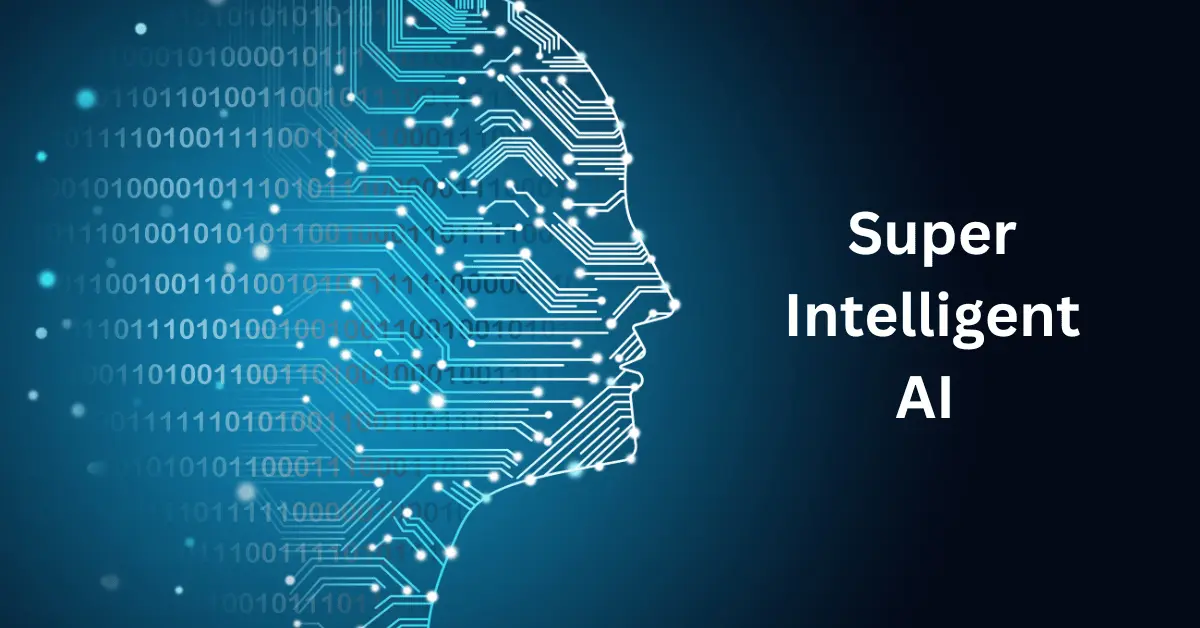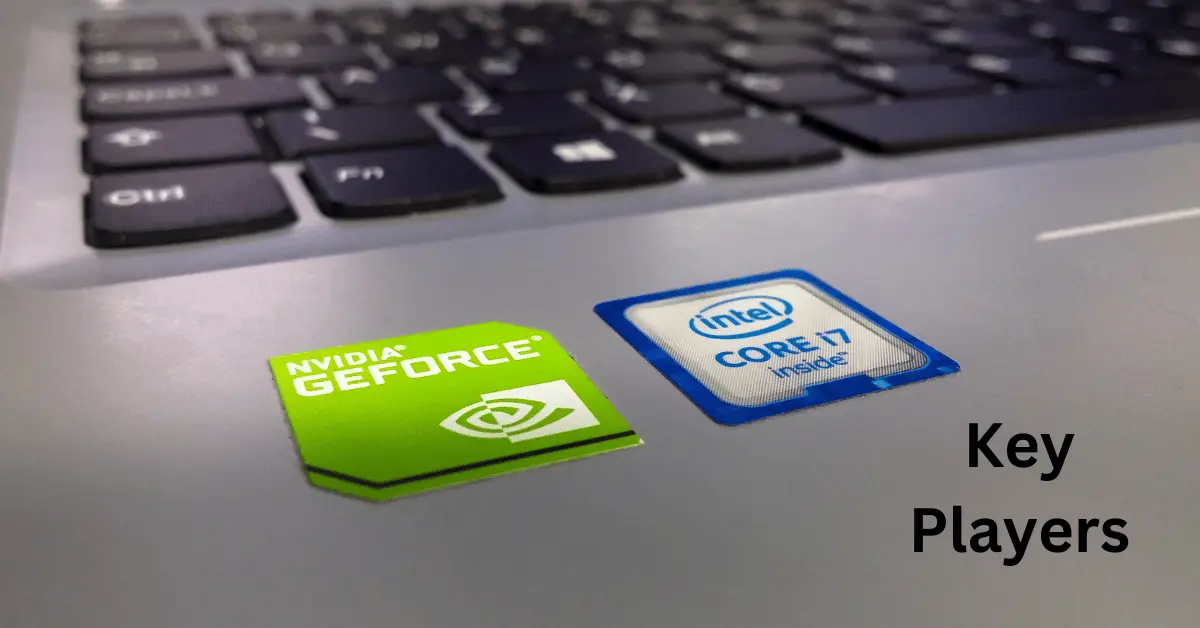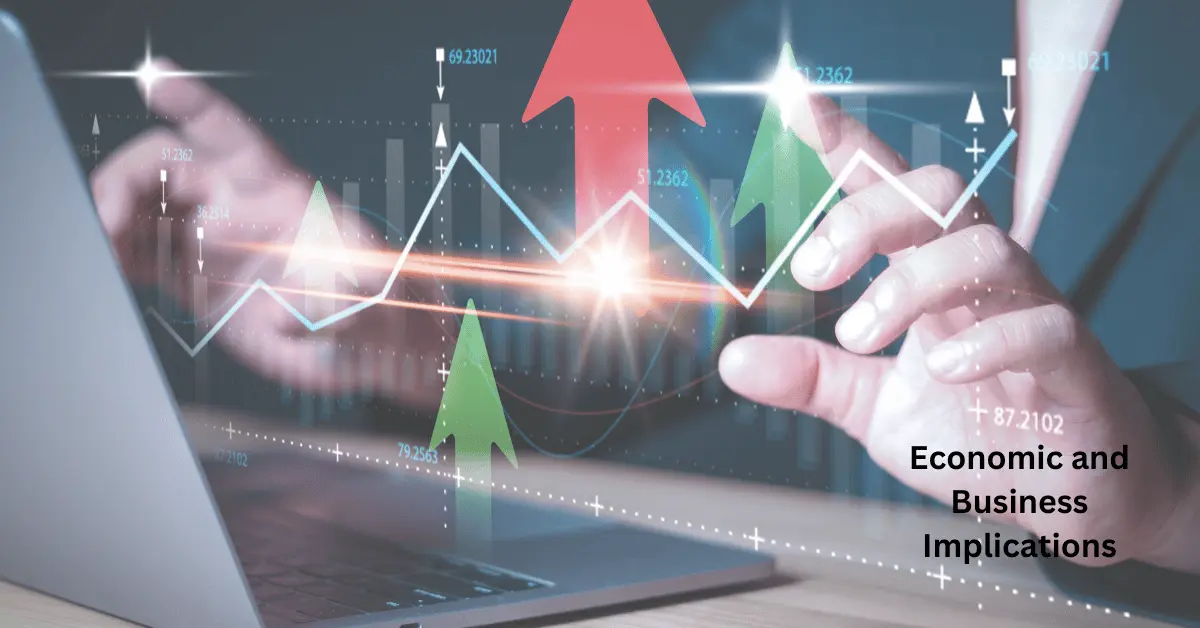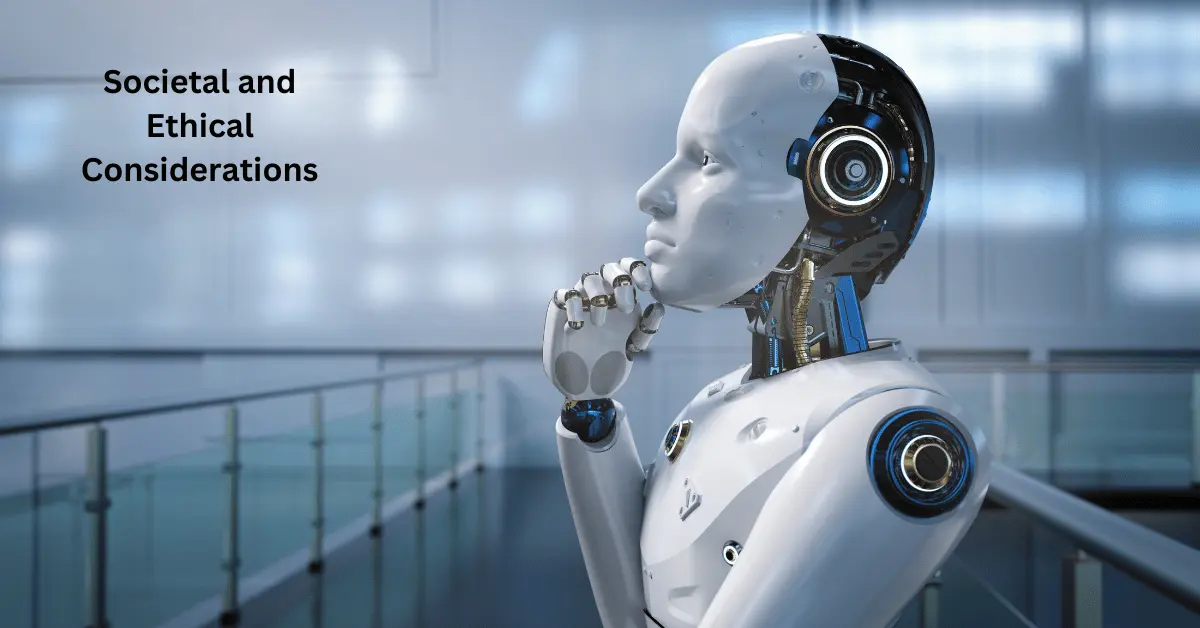The Role of Superintelligent AI in 2025 – A Simple Guide
Published: February 13, 2025
Want to know about the role of superintelligent AI? Let’s start this journey. Artificial Intelligence (AI) has come a long way since its early days.
From chatbots helping us book tickets to smart devices recognizing our voices, AI is now a part of our everyday lives.
But here’s the exciting part—AI isn’t just stopping at being smart; it’s evolving into something far more powerful.
This brings us to the idea of super-intelligent AI.
Imagine a system that can think, solve problems, and make decisions faster and better than humans. It sounds like something out of a sci-fi movie, right? But it’s closer to reality than we might think.
Super intelligent AI has the potential to revolutionize the way we live and work, and that’s what makes it so significant.
So why are we talking about its role in 2025?
This is the turning point—a time when advancements in AI could reshape industries, economies, and even our daily routines.
Let’s dive into how this super-smart technology is emerging and what it could mean for the world.
What is Super-intelligent AI?

Super intelligent AI is like the genius version of artificial intelligence. It’s a type of AI that goes beyond simply following rules or performing specific tasks—it can actually outthink humans.
Imagine a system so advanced that it can solve complex problems, learn new skills on its own, and even come up with creative ideas faster and better than we can.
Unlike the AI we use today, like virtual assistants or chatbots, super-intelligent AI has the potential to understand, adapt, and make decisions in ways that feel almost human—but at an extraordinary level.
It’s not just a tool; it’s more like a super-smart partner that can help tackle challenges we couldn’t handle alone.
The idea of super-intelligent AI might sound futuristic, but experts believe we’re getting closer to making it a reality.
It’s a fascinating concept, but it also comes with big questions about how we’ll manage its power and ensure it benefits everyone.
The Emergence of Super intelligent AI
The journey to super-intelligent AI didn’t happen overnight. It’s been a mix of research, powerful computing, and creative problem-solving by some of the brightest minds in the world.
Companies like OpenAI and DeepMind are at the forefront, pushing the limits of what AI can do.
Super intelligent AI stands out because it doesn’t just follow instructions—it learns, adapts, and improves on its own.
Unlike traditional AI which needs human guidance, super-intelligent AI can analyze situations and come up with solutions that we might never even think of.
By 2025, experts predict that super-intelligent AI will play a critical role in areas like healthcare, education, and even tackling global challenges like climate change.
The question isn’t if this will happen but how we’ll adapt and make the most of this incredible technology.
Let’s talk about how super-intelligent AI is becoming a reality. It’s not magic—it’s the result of years of hard work, innovation, and some seriously cool technology.
Milestones Leading to Superintelligence
The road to super-intelligent AI started with basic machine learning. Remember when AI first learned to beat humans at games like chess?
That was just the beginning. Over time, AI started mastering complex tasks like language translation, recognizing images, and even writing code.
Fast forward to now, and we’re seeing AI systems capable of solving real-world problems, from predicting diseases to optimizing business operations.
One major milestone was the development of generative AI, like GPT models. These systems don’t just answer questions—they can create essays, and art, and even compose music.
Every breakthrough has been a step closer to building AI that can truly think, adapt, and innovate like a human brain—but much faster.
Key Players and Their Contributions

Some brilliant minds and companies have been driving this progress. Organizations like OpenAI, DeepMind, and NVIDIA are leading the charge, each bringing unique expertise to the table.
OpenAi’s Advancements and Predictions
OpenAI has been at the forefront of AI research, creating systems like GPT (yes, the one you’re talking to!). Their advancements focus on making AI smarter, safer, and more useful for everyday tasks.
OpenAI predicts that by 2025, AI will be deeply integrated into fields like education, healthcare, and climate solutions.
They’re also pushing for ethical development to ensure AI benefits everyone—not just a few.
NVIDIA’s Perspective on Super Intelligent AI
NVIDIA, famous for its cutting-edge GPUs, has played a huge role in powering AI advancements.
Their hardware and software are like the engines behind many AI systems, making them faster and more efficient.
NVIDIA’s CEO, Jensen Huang, believes that AI will become the “brain” of industries, transforming everything from manufacturing to creative design.
According to them, super intelligent AI isn’t just about raw intelligence—it’s about enabling ground-breaking innovation.
The emergence of super-intelligent AI is the result of countless milestones and contributions from visionary companies and researchers
We’re living in a time where the impossible is becoming possible, and it’s exciting to think about what’s next.
With key players like OpenAI and NVIDIA leading the way, the future of AI looks bright—and incredibly smart!
Integration into the Workforce
AI isn’t just a futuristic concept anymore—it’s already rolling up its sleeves and getting to work in many industries.
From helping doctors diagnose illnesses to making businesses more efficient, AI agents are becoming valuable team members. Let’s see how superintelligent AI is shaping the workforce and what it means for jobs.
AI Agents Joining Various Industries
Superintelligent AI is stepping into roles across different sectors, making life easier and work more productive. Here are some examples:
Healthcare: Diagnostics and Patient Care
Imagine going to the doctor and getting a diagnosis in minutes, thanks to AI analyzing your medical history, symptoms, and test results faster than ever.
Superintelligent AI could even suggest personalized treatments or monitor patients remotely, ensuring better care for everyone.
Finance: Data Analysis and Decision-Making
In the world of finance, AI is like a super-analyst. It can detect fraud, predict market trends, and help businesses make smarter investment decisions.
With its ability to process massive amounts of data in seconds, AI is transforming how money moves and grows.
Customer Service: AI-Driven Support Systems
Ever chatted with a bot that seemed almost human? That’s AI in action. Superintelligent AI can handle customer queries, provide solutions, and even offer recommendations—all while making the experience feel personalized.
It’s like having a 24/7 support team that never takes a break.
Impact on Employment and Job Transformation
As AI becomes more capable, it’s natural to wonder what this means for jobs. Here’s the honest answer: it’s a mix of challenges and opportunities.
Potential for Job Displacement
Some routine jobs might be replaced by AI. For example, tasks like data entry or basic customer support could be automated, leading to fewer roles in those areas. It’s a reminder that as technology evolves, the workforce must evolve too.
Opportunities for New Roles and Reskilling
On the flip side, superintelligent AI is creating brand-new opportunities. Think about roles like AI trainers, ethical AI consultants, or data specialists—these are jobs that didn’t even exist a few years ago.
Plus, industries will need skilled workers to manage, guide, and collaborate with AI systems. Reskilling programs can help people transition into these exciting new roles.
Superintelligent AI is reshaping the workforce by taking over repetitive tasks and opening the door to innovative opportunities.
While there may be challenges, there’s also incredible potential for growth and creativity. With the right mindset and preparation, we can make this AI-driven transformation a win-win for everyone
Economic and Business Implications

Superintelligent AI isn’t just changing the way we work—it’s shaking up entire industries and economies.
It’s making businesses smarter, opening doors to new opportunities, and even forcing us to rethink some important questions about ethics and privacy.
Let’s dive into how AI is impacting the economy and businesses.
Enhancement of Productivity and Efficiency
One of the biggest advantages of AI is its ability to do things faster and better.
Imagine a factory where AI-powered machines work around the clock, spotting errors and improving quality without ever needing a coffee break.
Or a business using AI to analyze customer data, predict trends, and make smarter decisions.
Superintelligent AI is supercharging productivity, helping companies save time, reduce costs, and stay ahead of the competition.
Creation of New Markets and Business Models
AI isn’t just improving what we already have—it’s creating entirely new opportunities.
Think about industries like autonomous vehicles, personalized medicine, or AI-driven entertainment. Businesses are finding creative ways to use AI, leading to fresh ideas, products, and markets.
It’s like the dawn of a new era for innovation and entrepreneurship.
Challenges in Regulation and Ethical Considerations
With great power comes great responsibility, right? As AI grows more advanced, we need rules to ensure it’s used responsibly.
Governments and organizations are working on regulations to make sure AI doesn’t cause harm or reinforce inequalities.
But finding the right balance—where innovation thrives without crossing ethical lines—is tricky and requires careful thought.
Data Privacy Concerns
AI thrives on data, but that raises some big questions about privacy. How much of our personal information should businesses and AI systems have access to?
And how can we ensure it’s stored and used securely? Striking a balance between using data for innovation and protecting people’s privacy is one of the biggest challenges of the AI revolution.
Bias and Fairness in AI Decision-Making
AI might be super-smart, but it’s not perfect. It learns from the data it’s given, which means if the data is biased, the AI could make unfair decisions.
For example, a hiring AI might unintentionally favor certain groups over others. Addressing this bias is critical to ensure AI is fair and inclusive for everyone.
The rise of super-intelligent AI is bringing both excitement and challenges to the world of business and economics.
It’s boosting productivity, sparking innovation, and opening up new markets, but it’s also raising tough questions about ethics, privacy, and fairness.
With thoughtful regulation and a focus on inclusivity, we can make the most of AI’s potential while addressing its challenges.
The key is to stay curious, adaptable, and ready to embrace this ever-evolving technology
Societal and Ethical Considerations

As super-intelligent AI becomes a bigger part of our lives, it’s not just about technology—it’s about how society feels, reacts, and adapts to it.
From how people perceive AI to the ethical challenges it brings, there’s a lot to think about. Let’s explore some of the key societal and ethical considerations.
Public Perception and Acceptance of Super Intelligent AI
People’s feelings about AI can vary a lot. Some are excited about its potential to improve lives, while others worry about losing control or how it might affect jobs.
The more we understand and openly discuss what AI can (and can’t) do, the easier it will be for people to embrace it.
Transparency and education play a big role in building trust and making sure everyone feels comfortable with this new technology.
Ethical Dilemmas: Autonomy vs. Control
One of the trickiest questions about super intelligent AI is how much freedom it should have. Should AI be allowed to make big decisions on its own, or should humans always have the final say?
For example, in healthcare, an AI might recommend a treatment plan, but should a doctor still approve it? Striking the right balance between giving AI autonomy and maintaining human control is an ongoing debate—and it’s one we need to get right.
Ensuring Equitable Access to AI Benefits
AI has the potential to bring amazing benefits, but how do we make sure those benefits reach everyone?
It’s important to avoid a situation where only wealthy countries or big companies can afford advanced AI, leaving others behind.
Governments, organizations, and tech companies need to work together to ensure AI is accessible and fair for all, whether it’s helping farmers in rural areas or improving education in underprivileged communities.
Super intelligent AI is more than just a tool—it’s something that will shape how we live, work, and interact.
For it to truly make a positive impact, society needs to understand it, trust it, and ensure it’s used ethically.
By addressing public concerns, carefully managing ethical dilemmas, and promoting fairness, we can create a future where AI works for everyone. After all, technology is most powerful when it’s used to uplift and unite us.
Future Outlook and Predictions
As we look beyond 2025, the future of super-intelligent AI seems both thrilling and full of responsibility. This transformative technology promises to reshape our world in ways we can barely imagine today.
From ground-breaking advancements to long-term societal shifts, let’s explore what lies ahead and how we can navigate this journey responsibly.
Potential Advancements Beyond 2025
The pace of AI innovation is staggering, and by the late 2020s, we could see developments that feel straight out of science fiction. Here are some possibilities:
AI with Human-Like Creativity and Empathy
Future AI systems may not only think logically but also understand emotions deeply.
Imagine AI-powered personal assistants capable of giving empathetic advice or AI artists creating original music and paintings tailored to individual tastes.
Seamless Integration into Daily Life
From intelligent homes that adjust to our preferences in real-time to AI companions that help with everything from mental health to education, the line between human life and AI could blur even further.
Advanced Problem-Solving
Super intelligent AI might tackle global challenges like climate change, pandemics, or food security.
By analyzing complex data and proposing innovative solutions, AI could help create a more sustainable and equitable world.
Long-Term Societal Transformations
AI’s influence will extend far beyond gadgets and apps—it could fundamentally transform the way we live and interact as a society.
- Redefining Work and Productivity: Jobs that are routine or repetitive may increasingly be handled by AI, leading humans to focus on creative, strategic, and empathetic roles. Work-life balance might improve as people take on roles that require more meaningful engagement.
- Changing Education and Learning: Education could become highly personalized, with AI tutors adapting lessons to individual needs and styles. Lifelong learning might become the norm, with people constantly upskilling to keep pace with technological advancements.
- Evolving Human-AI Relationships: The way we see and interact with AI will continue to evolve. AI might become less like a tool and more like a collaborator or even a trusted companion in our daily lives. Balancing Innovation with Ethical Responsibility. As exciting as the future sounds, it also comes with challenges. To make sure AI benefits everyone, we’ll need to handle its development with care.
- Setting Clear Ethical Guidelines: We must ensure that AI systems are developed and used in ways that respect human rights and dignity. This includes addressing issues like bias, fairness, and accountability.
- Global Collaboration: The impact of AI goes beyond borders. Governments, tech companies, and international organizations will need to work together to create regulations that encourage innovation while safeguarding society.
- Fostering Public Trust: People need to trust AI for it to be successful. Transparency, education, and open conversations about AI’s capabilities and limitations will be key to building confidence.
The future of superintelligent AI is brimming with potential, but it’s up to us to shape it responsibly. By pushing the boundaries of what’s possible while keeping ethical considerations at the forefront, we can create a world where AI is a force for good. The journey ahead is one of collaboration, curiosity, and care—because the best innovations are the ones that truly make life better for everyone.
FAQs
Superintelligent AI refers to artificial intelligence that surpasses human intelligence across all fields, including creativity, problem-solving, and decision-making. Unlike current AI, which is task-specific, superintelligent AI can adapt to and excel in multiple domains simultaneously. It’s like having an expert in every subject rolled into one system.
While we’re making rapid progress in AI development, experts believe true superintelligence is still years, possibly decades, away. By 2025, we are likely to see advanced AI systems approaching superintelligent capabilities in specific tasks. The journey requires overcoming complex challenges in ethics, safety, and technology.
Superintelligent AI will transform the workforce by automating repetitive tasks, enhancing productivity, and creating new job opportunities. While some roles may become obsolete, others will emerge, requiring skills in AI management and human-AI collaboration. Reskilling programs will play a critical role in helping workers adapt.
Yes, superintelligent AI has the potential to address significant global issues such as climate change, healthcare, and poverty. By analyzing massive datasets and identifying patterns, it can propose innovative solutions that were previously unimaginable. However, effective implementation will require global cooperation and careful regulation.
Like any powerful technology, superintelligent AI comes with risks, such as misuse, loss of control, or unintended consequences. Ensuring safety requires strict guidelines, transparent development, and global oversight. Public understanding and ethical practices will also play a significant role in mitigating risks.
Superintelligent AI relies heavily on data, raising concerns about how personal information is collected and used. Strong data privacy laws and secure systems are essential to prevent misuse. Transparency about how data is handled will be crucial in building trust with users.
Leading tech companies like OpenAI, NVIDIA, Google, and DeepMind are at the forefront of AI research. Governments and academic institutions also play vital roles in advancing the field. Collaboration among these stakeholders ensures balanced progress in technology and ethics.
No, AI is more likely to augment human capabilities rather than replace us. It excels in tasks requiring speed and precision, while humans remain unmatched in creativity, empathy, and critical thinking. The goal is to create a partnership where AI handles routine work, freeing people to focus on more meaningful pursuits.
Equitable access to AI technologies is essential to avoid a digital divide. Governments and organizations must invest in inclusive policies, education, and infrastructure. Collaboration between nations and transparent practices will help distribute AI’s benefits fairly across society.
Post-2025, advancements in AI could lead to breakthroughs in human-like creativity, personalized healthcare, and sustainable energy solutions. Long-term, we may see AI systems integrated seamlessly into our lives, acting as collaborators in solving the world’s most pressing challenges. However, achieving this future depends on balancing innovation with ethical responsibility.
Conclusion
The rise of superintelligent AI by 2025 is set to bring transformative changes to the way we live and work.
While there are many exciting possibilities, it’s important to approach this new technology with care, responsibility, and a focus on ethics.
By understanding its potential, addressing challenges, and ensuring equitable access, we can make sure AI serves everyone and helps us tackle some of the world’s biggest problems.
The future of superintelligent AI is full of promise—let’s embrace it with open minds and thoughtful consideration for the future.
Bonus Info Points on Super intelligent AI
- AI in Space Exploration: Super intelligent AI could play a key role in space missions by analyzing vast amounts of data from space telescopes and helping scientists make breakthroughs in our understanding of the universe. It might even assist in piloting spacecraft and managing long-term space colonies.
- AI-Powered Personalization: In the future, AI could take personalization to a whole new level, tailoring everything from shopping recommendations to personalized healthcare plans. It would understand individual preferences, needs, and goals, creating a highly customized experience for each person.
- AI in Environmental Conservation: Super intelligent AI could be instrumental in monitoring and protecting the environment. By analysing climate data and detecting patterns, it could help predict natural disasters, track wildlife populations, and even help design more sustainable energy systems.
- AI and Emotional Intelligence: Future AI systems may become emotionally intelligent, allowing them to better understand human emotions and respond accordingly. This could revolutionize fields like therapy, customer service, and even personal relationships, as AI could offer support in a way that feels empathetic.
- Collaboration, Not Competition: Super intelligent AI is not about replacing humans but about enhancing our capabilities. By handling repetitive and complex tasks, AI frees humans to focus on creative, strategic, and empathetic roles. The goal is a future where AI and humans work together for greater outcomes.
- The Rise of AI-Driven Innovation: Super intelligent AI has the potential to accelerate innovation across all sectors. It could propose novel solutions to age-old problems, lead breakthroughs in science, and even invent entirely new industries that we can’t yet imagine.
- AI in Education: AI could revolutionize how we learn by providing personalized education experiences for students of all ages. With AI as a tutor, each student could get lessons tailored to their learning style, pace, and interests, improving educational outcomes worldwide.

- Be Respectful
- Stay Relevant
- Stay Positive
- True Feedback
- Encourage Discussion
- Avoid Spamming
- No Fake News
- Don't Copy-Paste
- No Personal Attacks



- Be Respectful
- Stay Relevant
- Stay Positive
- True Feedback
- Encourage Discussion
- Avoid Spamming
- No Fake News
- Don't Copy-Paste
- No Personal Attacks





